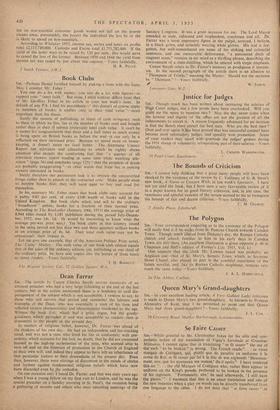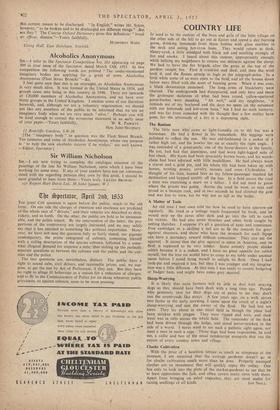Se Faire Casser
SIR,—While grateful to Mr. Christopher Sykes for his able and sym- pathetic notice of my translation of Vigny's Servitude et Grandeur Militaires. I cannot agree' that in translating " se fit casser" the use of the verb "to be broken" is wrong. The French reads:", , : ce vieux marquis de Coetquen, qui, plutett que de paraftre en uniforms A la revue du Roi, se fit casser par lui a la t6te de son regiment: ' Heureuse- ment, sire, que les morceaux me restent,' dit-il apres." I have rendered this as: ". . . the old Marquis of Coetquen who, rather than appear in uniform on the King's parade, preferred to be broken in the presence of his regiment. ' Fortunately, sire,' he said afterwards, ' I still have the pieces.'" I maintain that this is an exact translation and one of the rare instances when a play on words can be directly transferred from one language to the other. I do not deny that " se faire casser " in
this. context means to be discharged. "In English," writes Mr. Sykes, however, " to be broken and to be discharged are different things." But are they ? The Concise Oxford Dictionary gives this definition: " break an officer, dismiss."—Yours faithfully, Elsing Hall, East Derehatn, Norfolk. HUMPHREY HARE.



































 Previous page
Previous page